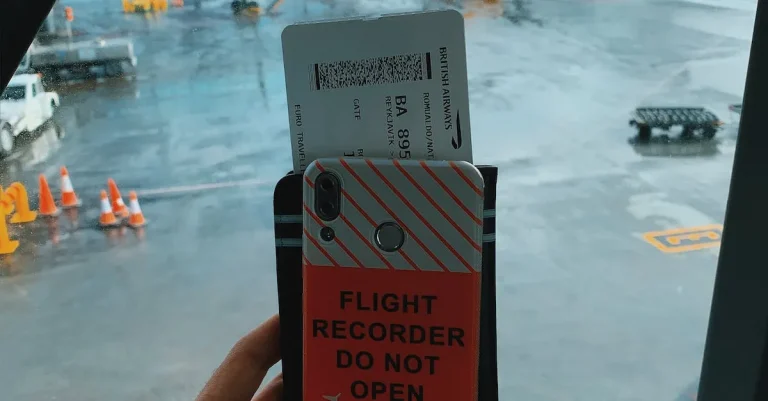Getting pulled over and receiving an expired inspection ticket can be frustrating and concerning. You may be wondering – how much is the fine, will my car get towed, and what are my options for resolving this ticket?
This comprehensive guide will provide all the details on fines, penalties, and how to rectify an expired inspection ticket in New Jersey.
Overview of New Jersey’s Inspection Requirements
New Vehicles
New Jersey law requires all new vehicles to undergo an inspection within the first five years of their registration. This initial inspection ensures that the vehicle meets the necessary safety and emissions standards.
The inspection must be done at a licensed inspection facility, and upon passing, the vehicle will be issued an inspection sticker to be displayed on the windshield.
Used Vehicles
Used vehicles in New Jersey are also subject to inspection requirements. Any vehicle that is more than five years old must undergo an annual inspection to ensure it continues to meet safety and emissions standards.
This inspection can be done at any licensed inspection facility, and upon passing, an inspection sticker will be issued.
Inspection Frequency
In New Jersey, vehicles that are less than five years old are not required to undergo annual inspections.
However, it is important to note that all vehicles, regardless of age, must still display a valid inspection sticker. Failure to do so can result in penalties and fines.
For vehicles that are more than five years old, annual inspections are mandatory. This ensures that older vehicles are regularly checked for safety and emissions compliance.
It is important for vehicle owners to keep track of when their inspections are due and schedule them in a timely manner to avoid any potential consequences.
Inspection Sticker
The inspection sticker is a crucial component of the inspection process in New Jersey. It serves as proof that a vehicle has passed the necessary inspections and is compliant with safety and emissions standards.
The sticker is typically placed on the lower driver’s side of the windshield and must be clearly visible.
It is important to note that an expired inspection sticker can lead to consequences, including fines and penalties.
Vehicle owners should ensure that their vehicles are inspected on time and that they display a valid inspection sticker to avoid any potential issues.
Consequences of an Expired Inspection Sticker
An expired inspection sticker can have several consequences for vehicle owners in New Jersey. Let’s take a look at some of the potential outcomes:
Fines and Surcharges
One of the immediate consequences of having an expired inspection sticker is the possibility of facing fines and surcharges. New Jersey law mandates that all vehicles must have a valid inspection sticker displayed at all times.
Potential for Additional Tickets
Having an expired inspection sticker can also increase the likelihood of receiving additional tickets. Law enforcement officers who pull over a vehicle for any reason may notice the expired sticker and issue additional tickets for related violations.
These violations can include driving with expired registration, driving without insurance, or even driving a vehicle with defective equipment. These additional tickets can result in even higher fines and penalties.
Car Towing
In some cases, having an expired inspection sticker can lead to the towing of the vehicle.
If the inspection sticker has been expired for an extended period of time or if there are multiple violations associated with the vehicle, law enforcement may have the authority to impound the car.
The cost of towing and impound fees can be significant, adding to the overall financial burden of the situation.
It is important to note that these consequences can vary depending on the specific circumstances and the discretion of law enforcement officers. However, it is always best to ensure that your vehicle’s inspection sticker is up to date to avoid any potential penalties.

How to Resolve an Expired Inspection Ticket
Receiving an expired inspection ticket in New Jersey can be a frustrating experience. However, there are several options available to resolve this issue and avoid further consequences. Here are three possible steps you can take:
Pay the Fine
If you have received an expired inspection ticket, one option is to simply pay the fine. In New Jersey, the fine for an expired inspection ticket can vary depending on the duration of the expiration.
However, it is important to note that paying the fine does not automatically resolve the issue.
You will still need to ensure that your vehicle passes inspection before the next deadline.
Request a Hearing
If you believe that you have been unfairly issued an expired inspection ticket, you have the right to request a hearing. This allows you to present your case and provide any evidence or documentation that supports your claim.
It is important to gather all relevant information and be prepared to make your case in front of a judge or hearing officer.
Keep in mind that requesting a hearing does not exempt you from resolving the expired inspection issue; it only provides an opportunity to challenge the ticket.
Inspect Your Vehicle
The most effective way to resolve an expired inspection ticket is to ensure that your vehicle passes inspection.
Schedule an appointment at an authorized inspection station and have your vehicle thoroughly inspected for compliance with New Jersey’s inspection requirements.
If any repairs or maintenance are necessary, make sure to have them completed before the next inspection deadline.
By taking proactive measures to address the issue, you can avoid further consequences and ensure that your vehicle is safe and roadworthy.
Tips to Avoid Expired Inspection Tickets
Mark Your Calendar
One of the easiest ways to avoid getting an expired inspection ticket in New Jersey is to mark your calendar.
As soon as you receive your inspection sticker, note the expiration date on your calendar or set a reminder on your phone.
This simple step can help you stay on top of your vehicle’s inspection requirements and prevent any unnecessary hassles.
Go Early
If you want to avoid long lines and potential delays, it’s best to go for your vehicle inspection early. Try to schedule your appointment for the beginning of the month or during weekdays when there is typically less traffic at the inspection stations.
By going early, you increase your chances of getting your vehicle inspected and receiving a new sticker before your current one expires.
Know the Grace Period Rules
New Jersey provides a grace period for expired inspection tickets. According to the state regulations, drivers have up to one month (30 days) after the expiration date to get their vehicle inspected without facing penalties.
However, it’s important to note that this grace period only applies if your vehicle’s inspection was current at the time of the expiration.
If your inspection was already expired, you may face fines and penalties even during the grace period.
Did you know? According to a study conducted by the New Jersey Motor Vehicle Commission, the most common reason for an expired inspection ticket is forgetfulness or neglecting to schedule an appointment.
By following these tips and staying proactive about your vehicle’s inspection requirements, you can avoid the consequences of an expired inspection ticket.
Remember to mark your calendar, go early, and be aware of the grace period rules to ensure that your vehicle stays in compliance with the state regulations.
Conclusion
Receiving a ticket for an expired inspection is never a pleasant experience. However, being informed on the rules, fines, and resolution options in New Jersey can help you efficiently address the ticket.
Most importantly, taking proactive steps like tracking inspection deadlines on your calendar will help you avoid expired tickets in the future.






